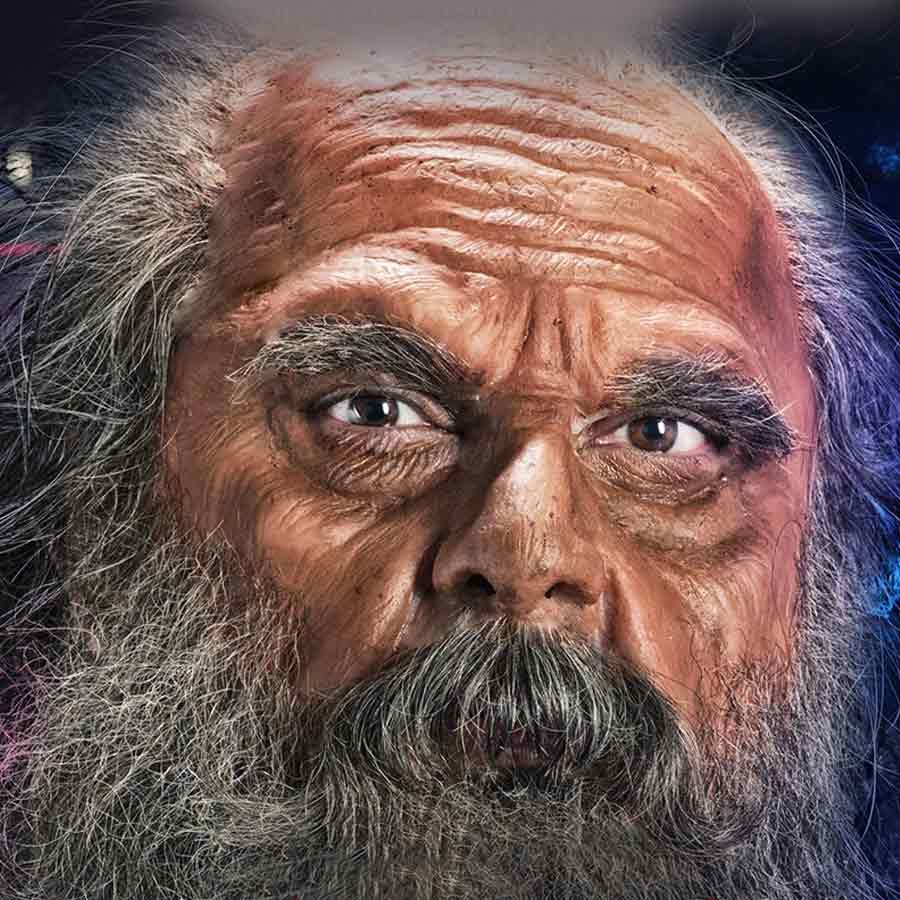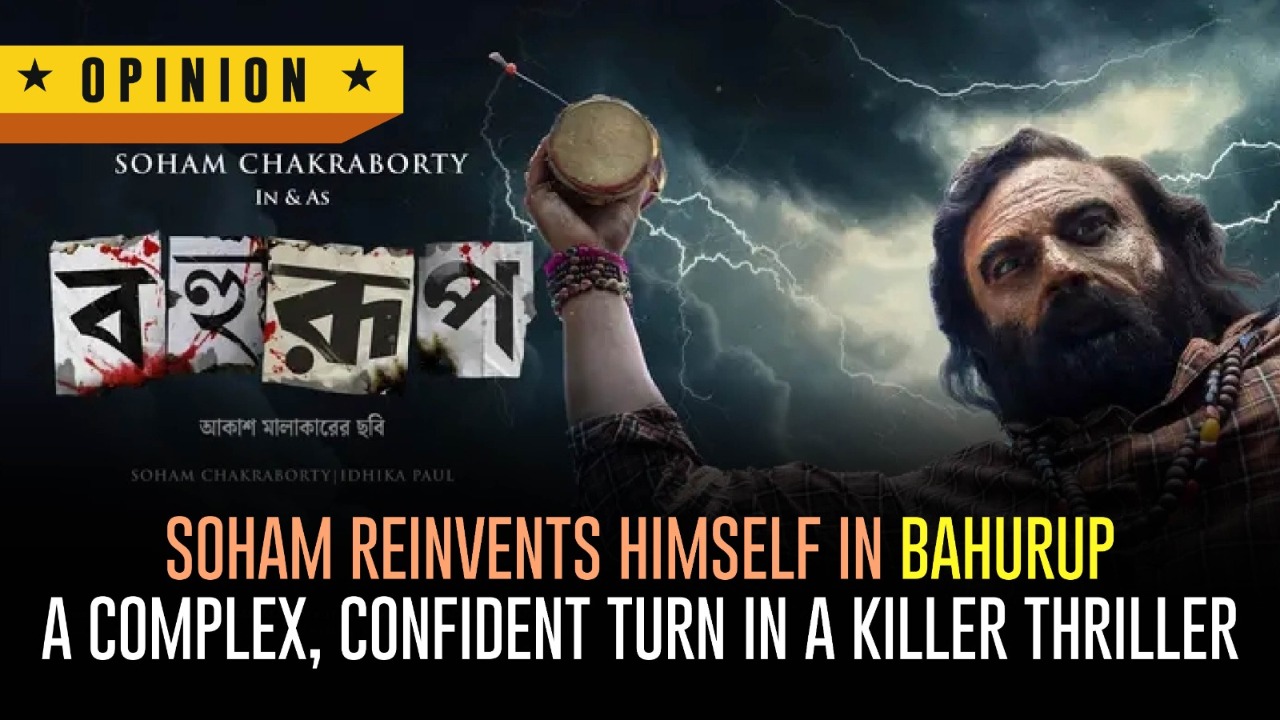Aakash Malakar’s Bahurup doesn’t waste time easing the viewer in. From its opening frames, the film leans into unease — not with jump scares or flashy cuts, but through something more quietly unsettling: a trail of handwritten poems left at crime scenes, each one in a different handwriting, all traced back to the same set of fingerprints. It’s a striking conceit, and one that immediately signals ambition.
But what’s more unexpected than the film’s premise is who carries it.
Soham Chakraborty — long associated with softer, safer roles — delivers something here that feels markedly different. He doesn’t simply play a lead in a thriller. He steps into a role that demands he shed every familiar rhythm and pacing he’s leaned on before. The result is his most assured, most surprising performance to date.

There’s no vanity in the way he approaches this part. His character — emotionally drained, professionally cornered — moves through the film like a man half-haunted, half-obsessed. Where the script leans into melodrama at times, Soham does the opposite: he pulls back, lets silences sit, and trusts the camera to pick up what the dialogue doesn’t say.
The film itself isn’t without flaws. The structure jumps across timelines — past and present, memory and moment — and not always with clarity. The second half gets carried away, stacking subplots where restraint might’ve served better. But despite the bloat, there’s a throughline of tension that never quite snaps, thanks largely to the performances.

Idhika Paul plays Uttara with a calm that keeps the film from spiralling too far into abstraction. She isn’t there to be saved or to be broken. Her presence is grounded, even when the narrative isn’t. The dynamic between her and Soham doesn’t rely on forced chemistry — and maybe that’s the point. Their interactions feel lived-in, not written.
Kamaleshwar Mukherjee, on the other hand, plays to the gallery — in the best way possible. He brings a kind of theatrical charge to his scenes, especially in the chase sequences, which are among the film’s visual high points. There’s a clear sense that Malakar knows how to block movement and shoot pursuit without losing rhythm.
Souvik Basu’s cinematography deserves mention. His frames carry weight — dim, often muted, but never dull. There’s atmosphere here, but not the kind that feels manufactured. Instead, it feels earned: the camera doesn’t show off, it observes.
And then there’s the music. Arpita Abhishek’s score resists the urge to overscore. She uses silence just as much as sound, and when the songs do appear, especially Hariye Jai, they don’t interrupt — they deepen.
However, Bahurup is uneven. But that’s not necessarily a criticism. It tries more than most, stretches further than it needs to, and takes risks even when they don’t all land. And that risk-taking is mirrored in Soham’s performance. He could’ve played this safer. He doesn’t.
Instead, he leans into ambiguity. Into quiet. Into restraint.
This isn’t a star vehicle. It’s a role that demands self-erasure, and Soham commits fully. That alone makes Bahurup worth watching. The fact that the film, for all its narrative excess, still holds your attention — that’s a bonus.
Soham hasn’t just chosen a better script this time. He’s made better choices within it. And in doing so, he’s opened a door to something new — not just for himself, but for the kind of stories Bengali cinema might be ready to tell next.

